A father struggles to break the poverty cycle and provide a better life for his children in Manila
Text and photography by Luc Forsyth
Castellero is a 49-year-old carpenter from Mindanao Island in the Philippines. When his wife left him for another man, he moved to Manila with his five children hoping to start a new life.
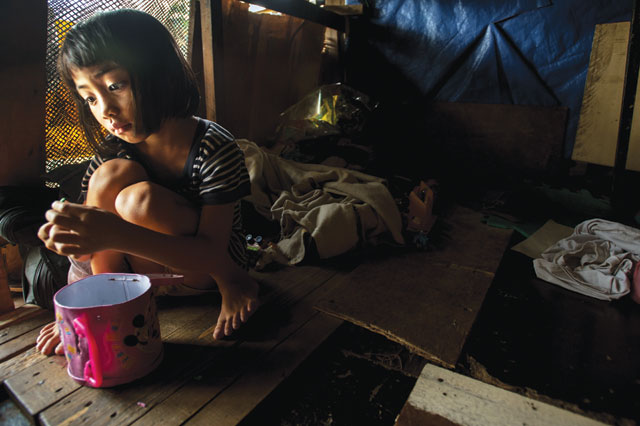
Initially he found work on one of the city’s large construction sites, but when the project ended he was unable to find a new job. Very quickly the savings he had were used up on feeding his family, and within a few weeks he was broke. Several months later his criminal and medical clearance certificates expired. These have to be renewed on a yearly basis in order to be legally employed in the Philippines, and he could not afford the $30 fee.
Two years later, Leo found himself living in a six-square-metre shack along the train tracks near the Osmena highway in Manila. Because he could not afford to pay rent for an actual apartment, Leo constructed the house himself out of scavenged pieces of plywood, cardboard, and tattered tarpaulin.
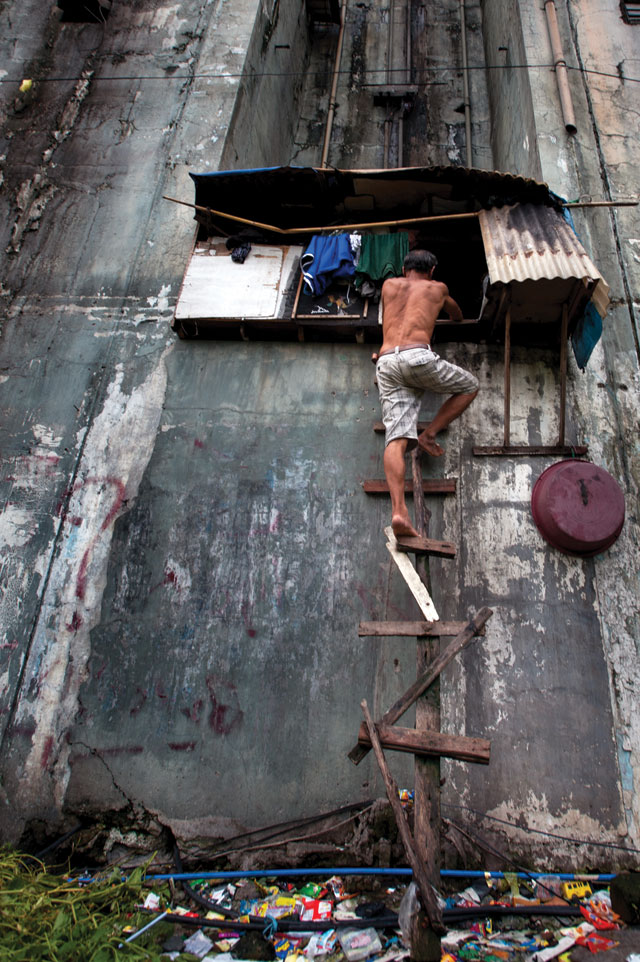
During the rainy season water drips through the roof onto the sleeping family, and the soaking walls become infested with mould. All meals are prepared on a single burner kerosine stove that chokes the air of the small room with acrid black smoke.
Yet through these hardships Leo remains a dedicated father, refusing to succumb to the vices that often claim those trapped in the poverty cycle. He doesn’t smoke, gamble or drink, but reinvests any money he earns into his children’s education.
In a country with roughly 25% of its population living below the poverty line, Leo’s story is not an uncommon one. With surging unemployment, rapid population growth and poverty statistics roughly on par with Haiti, Leo, like many Filipinos, face seemingly insurmountable challenges as they struggle to keep their families together.
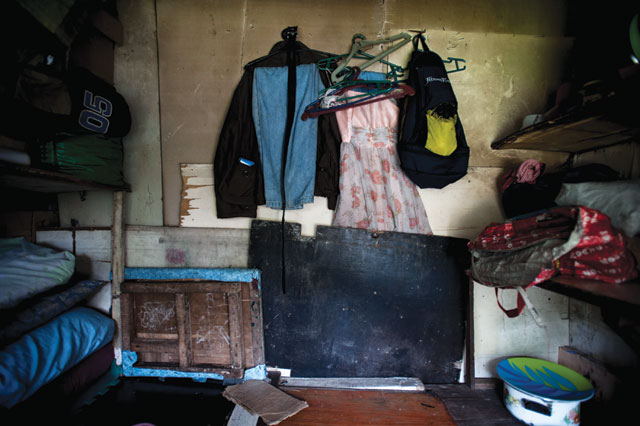
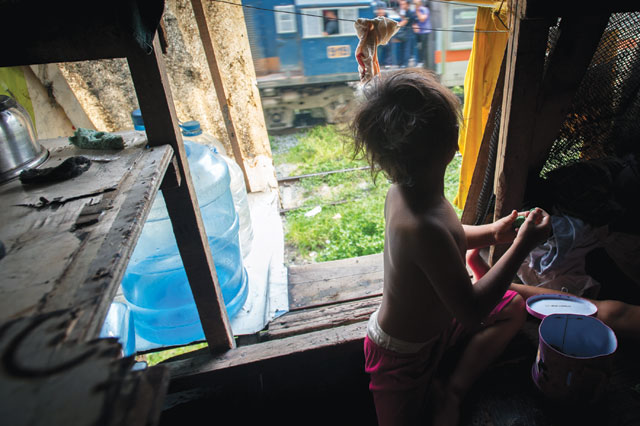

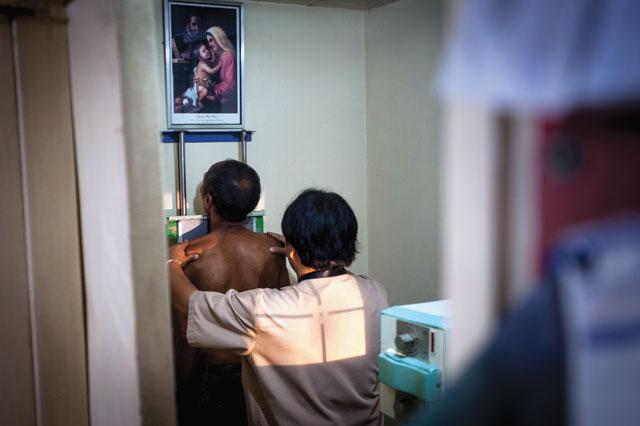
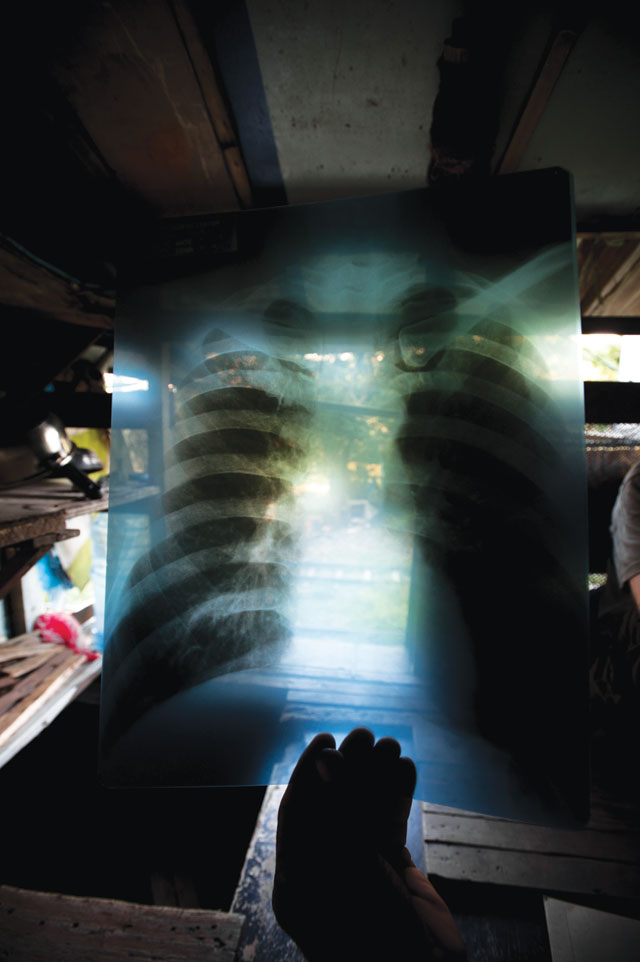
Keep reading:
“No particular place to go” – The future is uncertain for the thousands left displaced by the violent conflict in Mindanao, where the local government is accused of using them as pawns in a divisive political game

